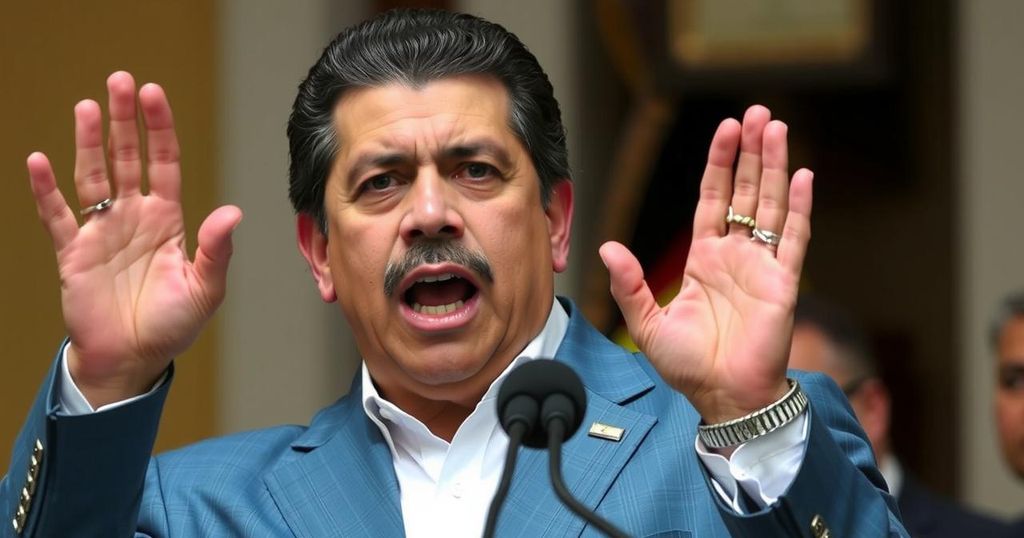Nicolas Maduro was sworn in for his third presidential term on Friday, despite ongoing disputes regarding the legitimacy of the July election and international calls for his resignation, as Venezuela continues to grapple with significant economic and social crises.
On Friday, Venezuelan President Nicolas Maduro was officially sworn in for his third term in office. This event comes amid significant controversy surrounding the legitimacy of the July election, which sparked a six-month dispute and drew international condemnation. Maduro’s extended tenure, marked by severe economic difficulties and a humanitarian crisis, exceeds nearly 12 years, raising concerns both locally and globally regarding the future of democracy in Venezuela.
Nicolas Maduro succeeded Hugo Chavez in 2013 following the latter’s death. His presidency has been characterized by a rapidly deteriorating economy, hyperinflation, and widespread shortages of essential goods, leading millions of Venezuelans to flee the country. The recent election, which Maduro claims legitimizes his continued rule, has been dismissed by many international observers and governments as lacking credibility. The situation has elicited calls for democratic reforms and humanitarian assistance, underscoring the broader implications for regional stability and international relations.
The swearing-in of Nicolas Maduro for a third term amidst contested elections and widespread economic strife epitomizes the continuing crisis in Venezuela. International scrutiny and calls for his resignation reflect a growing concern over democratic integrity and humanitarian conditions. Should these challenges remain unaddressed, Venezuela’s socio-economic turmoil and political rivalry may deepen, impacting not only its citizens but also the wider geopolitical landscape.
Original Source: www.usnews.com






